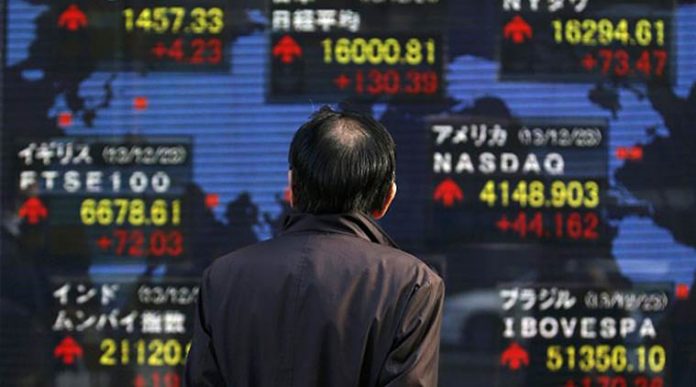HONG KONG: Asian shares sank Friday, following declines on Wall Street after a proposed delay to U.S. tax cut plan dented investor sentiment.
KEEPING SCORE: Japan’s benchmark Nikkei 225 index lost 1.4 percent to 22,539.75 and South Korea’s Kospi fell 0.5 percent to 2,538.34. Hong Kong’s Hang Seng slipped 0.2 percent to 29,079.32 and the Shanghai Composite in mainland China sank 0.3 percent to 3,419.16. Australia’s S&P/ASX 200 shed 0.3 percent to 6,033.90.
TAX DELAY: U.S. politicians surprised Wall Street with proposed delay in cutting corporate taxes. Proposed bills would ultimately slash the tax rates to 20 percent from 35 percent but the one from Senate Republicans wouldn’t take effect until 2019. U.S. markets sold off in reaction to the news, with industrial and technology shares leading the declines, before recouping some of the losses by close of trading.
FORECAST DOWN UNDER: The Australian central bank forecast a “solid pace of growth” averaging about 3 percent over the next couple of years in its latest monetary policy statement. But it also trimmed its inflation and wage growth expectations, suggesting that it will keep benchmark interest rates at their current low levels.
WALL STREET: Major U.S. benchmarks ended skidded lower a day after closing at all-time highs. The Standard & Poor’s 500 index dropped 0.4 percent to close at 2,584.62. The Dow Jones industrial average fell 0.4 percent to 23,461.94. The Nasdaq composite slid or 0.6 percent to 6,750.05.
CURRENCIES: The dollar was steady at 113.44 yen. The euro rose to $1.1645 from $1.1640.
ENERGY: Oil futures slipped from their highest levels since mid-2015. Benchmark U.S. crude fell 14 cents to $57.03 a barrel in electronic trading on the New York Mercantile Exchnage. The contract gained 36 cents to settle at $57.17 a barrel on Thursday. Brent crude, used to price international oils, dipped 12 cents to $63.81 a barrel in London.




